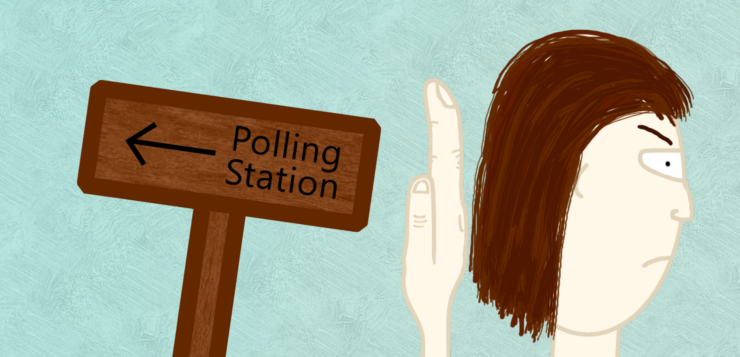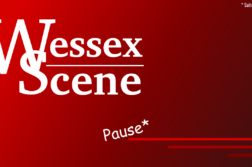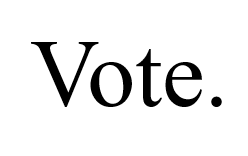“It is… far more important to resist apathy than anarchy or despotism for apathy can give rise, almost indifferently, to either one.”
“Why should I vote for a politician that I don’t trust?”, “What is the point in voting if my vote doesn’t make a difference?”, “How can I vote when I don’t understand what I’m voting for?” – Questions often asked by young adults.
I, like many other young adults, was excited when I turned 18 and gained the right to vote. As my friends and I discussed voting, I was repeatedly left in disbelief whenever one of my friends would say “I don’t think I’m going to vote”. I could not understand why not everyone was as excited as I was, and why not everyone wanted to exercise their newfound right. However, historically, the voter turnout among young adults, particularly those aged 18-24, has been lower than that of their older counterparts, with just 47% of 18-24-year-olds casting a vote in the 2019 United Kingdom general election and research showing that young people are less likely to register to vote, to vote, and to be elected. I had to wonder, is this political apathy the result of dissatisfaction with the way democracy works?
Despite support for democracy having risen, a study conducted by The Electoral Commission shows that more people in the United Kingdom are dissatisfied with the way democracy works than are satisfied, with 39% of people stating that they are dissatisfied in comparison to 33% of people stating that they are satisfied. This dissatisfaction is the result of issues including negative attitudes towards politicians, the use of a first-past-the-post electoral system, and lack of political education.
Negative attitudes towards politicians:
“During the pandemic, trust in politicians started low and fell sharply lower as it continued.”
“Why should I vote for a politician that I don’t trust?” – Trust is a fundamental component of a functional democracy. However, In recent years, the COVID-19 pandemic has significantly impacted the attitudes held towards politicians, with perceived mishandling of the pandemic, slow decision-making, and unclear communication. Additionally, controversies including ‘Partygate’, which saw politicians holding social gatherings and parties during lockdown whilst such activities were prohibited, have raised concerns about the perceived hypocrisy of politicians. Polls conducted both before and after ‘Partygate’ show a further decline in trust, with just 35% of people stating that they trust the national government. This erosion of trust has resulted in political apathy as when people do not believe that they can trust politicians, they become disengaged from politics, feeling that their participation doesn’t make a difference.
The use of a first-past-the-post electoral system:
“A system where votes are not equal because, unless you live in one of a small number and heavily targeted marginal seats, your vote quite simply does not count.”
“What is the point in voting if my vote doesn’t make a difference?” – The electoral system is another fundamental component of a representative democracy. In the United Kingdom, first-past-the-post is the electoral system adopted in elections. In a first-past-the-post electoral system, voters cast a vote for a single candidate, and the candidate with the most votes wins the election. This Winner-Takes-All electoral system results in ‘wasted’ votes, as any vote cast for a candidate who does not win the election is disregarded. As a result, the use of a first-past-the-post electoral system has been criticised, with 33% of people stating that they do not believe voting for their preferred candidate will make a difference. This belief has resulted in political apathy, with Caroline Lucas stating “constituents are disillusioned, disaffected and disengaged”.
Lack of political education:
“It is little wonder that young people continue to be turned off politics, when politics is something that is generally not discussed at school.”
“How can I vote when I don’t understand what I’m voting for?” – I would argue that beyond negative attitudes towards politicians and the use of a first-past-the-post electoral system, it is lack of political education which results in the greatest political apathy. With 85% of people stating that they felt they left school with little or no political knowledge and just 31% of 18-24-year-olds stating that they understand how the voting system works, it should come as no surprise that, historically, the voter turnout among young adults has been lower than that of their older counterparts. Greater political education would allow for negative attitudes towards politicians to be challenged and for a greater understanding of the advantages of the use of a first-past-the-post electoral system, preventing political apathy, as people would understand that their participation does make a difference. However, with a fifth of secondary schools in the United Kingdom providing no education about politics, greater political education is something that is inaccessible to many young adults.
However, in a contemporary society, characterised by deep social and political divisions, it is more important than ever to combat political apathy by holding politicians accountable, advocating for electoral reform, engaging in political education, and exercising your right to vote. After all, “Presumably, apathy is the greatest danger to truly representative political systems; without the vote, with blind choice, or with one choice, the representative character of democracy is lost.”




